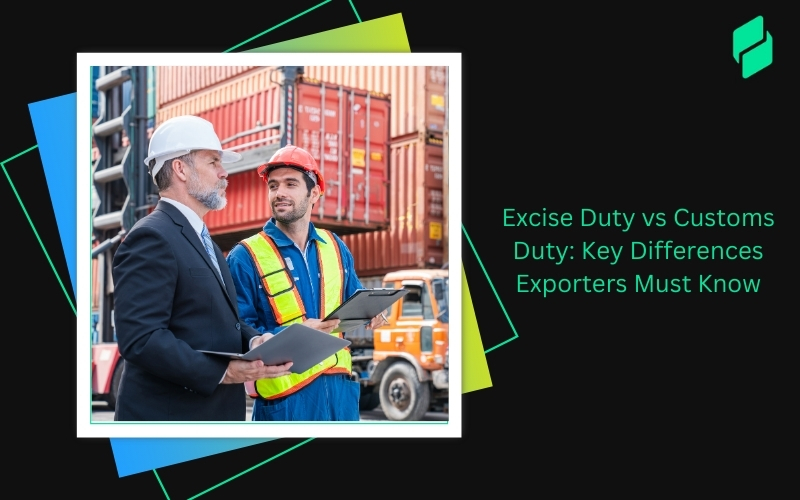Optimize your business: use unlimited savings with Pazago fulfilled now!
Get Started ->The risk of loss or damage is always present when shipping goods, especially across international borders. From natural disasters to mishandling, your cargo is exposed to numerous threats.
Are you wondering what cargo insurance is and how it can protect your business? Cargo insurance ensures you’re financially safeguarded if something goes wrong during transportation.
Let’s explore this essential protection in detail.
Understanding Cargo Insurance

Cargo insurance protects goods from potential risks during transit, whether by land, sea, or air. It’s especially critical for businesses that ship high-value or large quantities of goods globally, ensuring financial protection in case of loss or damage.
Cargo Insurance Definition
The definition of cargo insurance is straightforward: it’s a policy that compensates for physical damage or loss of cargo while being transported. Cargo insurance protects your investment from when the goods leave your premises until they reach their destination.
Importance for Businesses in Global Transportation
Unexpected events in global transportation, such as accidents, weather disruptions, or piracy, can lead to significant losses. Cargo insurance allows businesses to mitigate these risks and avoid severe financial setbacks. It's a crucial investment for any business dealing in international trade.
Common Risks in Transport
Goods can face several risks during transit, such as:
- Natural Disasters: Floods, storms, or earthquakes that can damage or destroy cargo.
- Accidents: Damage caused by collisions, fires, or derailments.
- Theft: Goods stolen during loading, unloading, or transit.
- Customs Issues: Delays or abandonment of goods at customs.
Types of Cargo Insurance
Different types of cargo insurance are available based on the mode of transport used. Each offers specific coverage depending on the type and value of shipped goods.
Land Cargo Insurance
Land cargo insurance covers goods transported by road or rail within a country or neighboring regions. This is particularly useful for companies that rely on truck or train deliveries over long distances.
Marine Cargo Insurance
Marine cargo insurance is a widely used type of insurance that covers goods transported by sea. It offers protection against various risks, such as pirate attacks, sinking, and weather-related incidents.
Air Cargo Insurance
For goods shipped by air, air cargo insurance offers protection from risks like turbulence-related damages, theft at the airport, or accidents. Given the speed of air transport, this is essential for businesses needing to move high-value items quickly.
Also Read: Understanding Marine Cargo Insurance and Freight Liability
Why is Cargo Insurance Important?
Cargo insurance is essential for businesses that frequently ship goods, especially internationally. Here are the key reasons why:
1. Preventive Measures for Risk Management:
- Cargo insurance acts as a financial safeguard, protecting businesses from unforeseen events like accidents or natural disasters.
- It helps businesses avoid substantial financial losses by ensuring their goods are covered in case of damage or loss during transit.
2. Exposure to Unpredictable Risks:
- Both domestic and international shipping involve numerous risks, from theft to accidents.
- Without insurance, a single incident could result in major financial damage, potentially crippling a business.
3. Limited Liability of Carriers:
- Carriers often only offer limited compensation for damaged or lost cargo, covering just a fraction of the goods’ value.
- Cargo insurance ensures full compensation for the actual value of the goods, preventing businesses from absorbing the loss.
4. Benefits for Businesses in International Trade:
- Longer transit times and complications like customs delays or geopolitical risks make international shipments particularly vulnerable.
- Cargo insurance allows businesses to engage in global trade confidently, knowing that their goods are protected from unexpected disruptions.
Cargo Insurance Coverage and Costs
Understanding the definition of cargo insurance coverage is crucial to ensuring your goods are adequately insured. Let’s explore the typical coverage provided and its cost.
What Does Cargo Insurance Cover?
Cargo insurance typically covers several types of risks, including:
- Natural Disasters: Earthquakes, floods, or hurricanes.
- Theft: Stolen goods during any stage of transit.
- Fire or Explosion: Damage caused by fire or an explosion.
- Accidents: Damage caused by road, air, or sea accidents.
Here’s a quick comparison of what cargo insurance generally covers:
What Cargo Insurance Does Not Cover
It’s equally important to understand the exclusions under a cargo insurance policy. Common exclusions include:
- Improper packaging: Insurance won't cover the loss if goods are damaged due to poor packaging.
- Inherent vice: Damage caused by the natural deterioration of goods, like perishable items.
- Delays: Financial losses from delays are typically not covered unless specifically mentioned in the policy.
How Are Cargo Insurance Costs Calculated?
The cost of cargo insurance is usually determined by considering the value of the goods being transported, the method of transportation, and the specific route. One common method for calculating insurance premiums is the CIF + 10% formula, which considers the cost of the goods, insurance, and freight.
How Cargo Insurance Works
To understand what is cargo insurance, it’s essential to know how it functions in practice. Here's a step-by-step guide on how cargo insurance works:
1. Policy Clauses and Coverage Details
- Cargo insurance policies contain various clauses specifying the coverage provided. Businesses must understand these clauses to ensure their goods are fully protected.
2. Premium Payment and Policy Purchase
- Once a business selects a cargo insurance policy, the premium must be paid upfront. The premium amount depends on the value of the goods, the risks involved, and the transportation mode.
3. Claims Submission and Review Process
- The business must file a claim with the insurance provider if goods are damaged or lost. Key documents required for a claim include:
- Bill of lading: Proof of shipment.
- Commercial invoices: Proof of the value of the goods.
- Photos or inspection reports: Documentation of the damage.
Once the claim is submitted, the insurance company reviews it and compensates the business based on the policy terms.
When Do You Need Cargo Insurance?
Wondering when you should opt for cargo insurance? Let’s explore scenarios where this coverage is critical.
Accidents and Unforeseen Events
Cargo insurance is crucial for high-value shipments or shipping to regions prone to natural disasters or political instability. Some facts to consider:
- Natural Disasters: Events such as hurricanes, earthquakes, and floods can occur without warning, particularly in regions where they are common. In 2020 alone, global disasters resulted in over $210 billion in damages, significantly impacting shipments.
- Geopolitical Risks: Certain regions have a higher risk of theft or piracy, especially maritime routes near conflict zones or regions with high crime rates. For example, piracy in areas like the Gulf of Aden and the Strait of Malacca is still a significant threat, affecting shipping lanes. Cargo insurance protects against these unforeseen events, ensuring you cannot absorb the full financial impact.
- Accidents: Accidents during transportation, such as truck rollovers, shipping container mishaps, or air cargo malfunctions, can lead to significant damage to goods. Cargo insurance ensures that, in these cases, you can recover the value of the damaged goods.
Protection Against Risks

For businesses involved in regular shipping, cargo insurance ensures comprehensive protection against frequent risks. Here’s why consistent coverage is essential:
- Frequent Shipments: Businesses that ship goods frequently encounter various issues, such as cargo misplacement, theft, or damage. Having cargo insurance is essential to protect against these risks and ensure continuous coverage for multiple shipments.
- Vulnerabilities in Supply Chains: Supply chains can be impacted by various factors, such as fluctuating market conditions, regulatory changes, and port delays. In 2021, supply chain disruptions led to billions of dollars in losses worldwide, primarily due to pandemic-related shipping delays. Cargo insurance can help reduce the financial impact of these setbacks.
Advice from Industry Professionals
Navigating the complexities of cargo insurance can be overwhelming. Consulting with professionals can be highly beneficial:
- Tailored Insurance Plans: An experienced broker can help you identify the specific risks tied to your shipping routes and cargo type. For example, shipping electronics to regions with high theft rates may require additional theft protection coverage, while perishable goods might need insurance covering spoilage.
- Risk Assessments: Insurance brokers often provide detailed risk assessments to help businesses determine what type of coverage they need. They consider factors such as the value of goods, transport modes, and destination risks, ensuring the policy matches the company’s requirements.
Benefits of Cargo Insurance
The benefits of cargo insurance go beyond just protecting your goods.
1. Financial Security
- Carrying insurance provides financial security for your business by covering damages or losses. This ensures you don’t have to bear the total cost of lost or damaged goods.
2. Compliance with Trade Regulations
- Many trade agreements require businesses to have cargo insurance, especially in international trade. Having insurance in place ensures you comply with these agreements.
3. Business Reputation
- Offering shipment insurance signals professionalism and reliability, boosting your business’s reputation with clients and partners.
Conclusion
Cargo insurance is an indispensable tool for businesses involved in shipping, whether domestically or internationally. By protecting goods from a wide range of risks - disasters, accidents, theft, and more - cargo insurance ensures businesses can continue operating smoothly, regardless of what happens during transit.
Now that you know what cargo insurance is, it’s clear that this investment is critical for anyone shipping goods globally.


.png)


.png)





